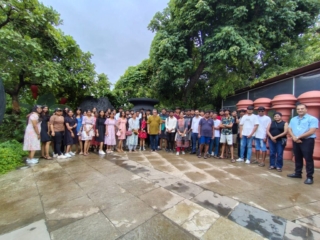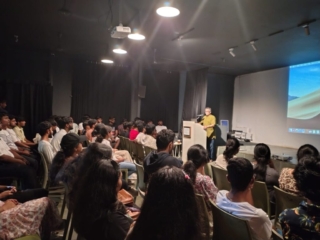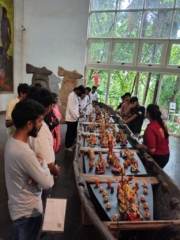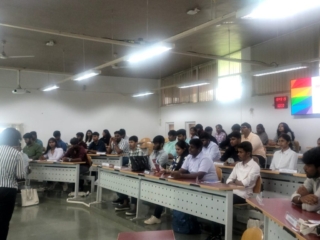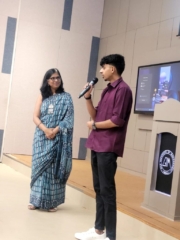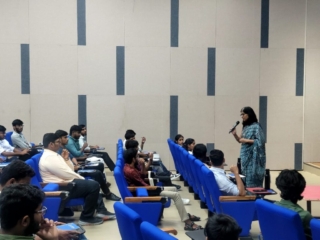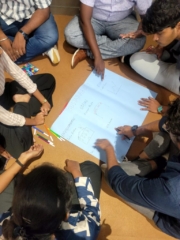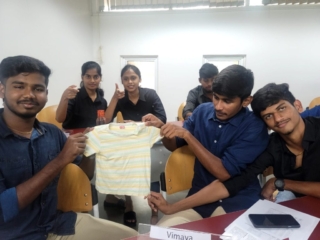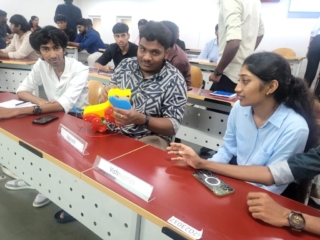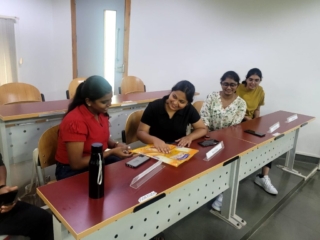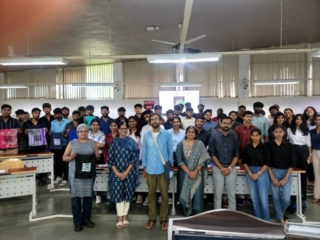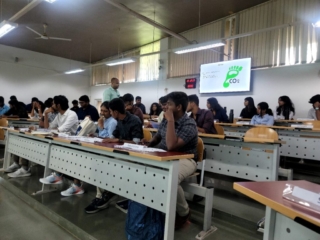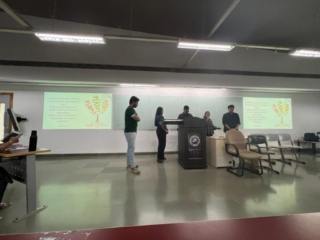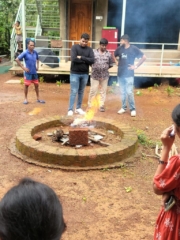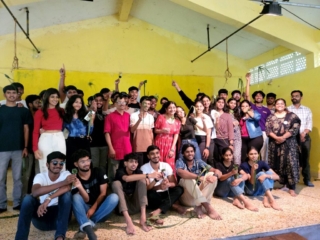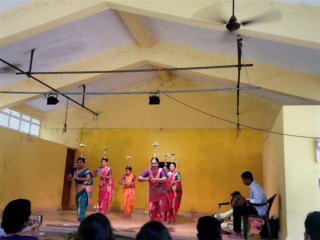
- This event has passed.
National Immersion Program – Goa Institute of Management
October 23, 2024 @ 8:00 am - 5:00 pm
National Immersion Program to Goa started with students of B.Com and B.Com PA (Totally 50 students) travelling to GOA INSTITUTE OF MANAGEMENT, GOA
Day 1:
The students visited the Museum of Goa (MOG). This contemporary art institution showcases the rich cultural history of Goa through art, blending past, present, and future narratives. Artist and founder director of MOG, Mr. Subodh Kerkar, addressed the students, offering insights into the power of art in storytelling and its role in fostering appreciation for Goa’s heritage. The visit provided an enriching experience, blending culture and education, setting the tone for responsible management practices.
Day 2:
The second day began with Decoding Sustainability and Responsible Management Practices by Prof. Dr. Divya Singhal. She emphasized the core principles of sustainability, highlighting its importance in business strategy and decision-making. Dr. Singhal discussed frameworks that integrate sustainable practices into responsible management, offering students insights into how businesses can align profitability with environmental and social stewardship.
Next, in Sustainable Business Model and SDG Express Challenges, Dr. Divya Singhal explored business models that incorporate the Sustainable Development Goals (SDGs). She challenged students with an interactive activity to assess their understanding of sustainability, encouraging them to think critically about sustainable solutions in real-world contexts.
The afternoon session on Gender and Human Rights Issues in Business by Dr. Sreerupa Sengupta addressed the intersection of business practices and social equity. Through small case studies, she illustrated the challenges businesses face regarding gender discrimination and human rights, urging students to consider ethical implications in decision-making and policy formulation.
The final session, Leadership for Sustainable Development by Dr. Shelly Pandey, focused on leadership’s role in promoting sustainability. Students participated in an activity analyzing the application of SDGs in the automobile sector, evaluating how leaders can drive sustainable development in various industries, emphasizing the transformative potential of responsible leadership.
Day 3:
The day 3 began with Understanding Carbon Footprint and Institutional Practices by Prof. Abhishek Naresh. This session helped students grasp the magnitude of their daily carbon footprints. Using a Footprint Calculator, students discovered their individual environmental impacts and discussed strategies to neutralize or reduce their footprints. Prof. Naresh emphasized the importance of institutional practices in mitigating climate change through proactive measures.
Next, Sensible Earth: Maka Naka Plastic by NGO expert Mr. Sanjiv Khandewal focused on one man’s mission to make Goa plastic-free. Mr. Khandewal shared his journey and efforts to reduce plastic pollution in Goa, advocating for collective responsibility in environmental conservation.
In the afternoon, Sustainable Supply Chain by Prof. Vishwesh Singbal addressed the need for sustainable practices in supply chain management. He explained how integrating sustainability into supply chains can enhance both efficiency and environmental responsibility, urging businesses to consider long-term impacts over short-term gains.
The day concluded with a special ASK ME interaction with GIM students who won an international award for creating a sustainable story around a startup founder. The session showcased their innovative approach to sustainability storytelling, inspiring peers to contribute to positive environmental and social change through creative avenues.
Day 4:
To offer an immersive sustainable experience, a day-long excursion exploring ecology, nature, and tradition was organized. The day began with a visit to the Harvalem Waterfall and the nearby Harvalem Temple, where students learned about the site’s historical and ecological significance. At Suryakant’s House, a local artist introduced students to leaf art, providing a hands-on creative experience. Students also witnessed the Divli Dance performed at a local temple, gaining insight into traditional Goan cultural practices.
The group then visited the Bhramhakarmali Temple, followed by a lunch featuring Goan local delicacies, prepared using home-grown spices at a local farm. Post-lunch, students engaged in a traditional Cashew Roasting activity, followed by storytelling and other engagement activities. The entire excursion was coordinated by SOUL Travellers, ensuring a deep connection between sustainability, culture, and local traditions.
